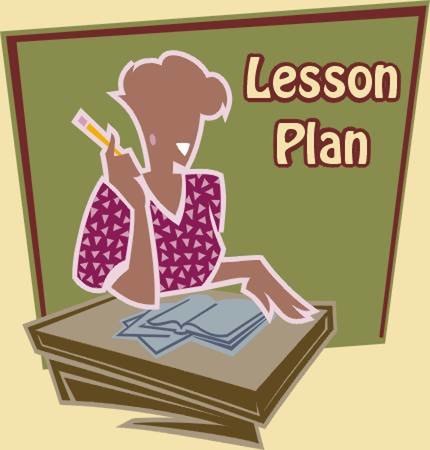Lesson planning in question

Planning or improvising
Performing in class without a prior plan is certainly like sailing without a compass. Actually the sailor’s tools and equipments do go beyond a simple gadget as that of a compass. I’m not an expert in the field, but there is surely a great deal of complex means that complement each other so as not to go astray. The analogy could be drawn to what actually happens in class to realize a successful class performance. A lesson plan could be seen as a detailed description of the different steps and activities of a lesson bearing in mind all the intervening or unexpected factors and occurrences. However, a blind following of a plan on a sheet may turn a teacher to a mere robot-like performer who may break down at any unexpected factor. Or even turn disappointed if the lesson does not go even with what you have in mind. It can be doomed to break down as well with a different level or stream or just due to students’ psychological or physical state, bad mood, or even to environmental severities – being weather or classrooms and schools terrible, unpleasant, and uncomfortable seats in most of the cases in our country. In this paper I’ll try to spotlight this issue from the humble experience of my teaching career.
There is no gainsaying that a plan is a useful guiding tool -among others in the teacher’s toolbox – to the teacher especially to novices. It provides a secure means of getting the lesson move smoothly from one activity to another. It keeps the teacher aware of the different steps and even provides potential fillers for those left-behind minutes at the end of the class periods, too. A well designed plan reflects the teacher’s professional side as well as an official administrative reference for supervisors and administrators. It can even inspire for action research, or even more detailed academic works. A lesson plan may be a rich resource for professional development assessment and feedback. I still recall my internship at the ENS in Rabat. Our methodology professor was all the time focusing on detailed lesson plans; he asked us to put even the classroom language that may be used in class. There were apparently reasons behind –I don’t doubt; a novice needs even those speech fillers and needs to learn the classroom language, either. The book I still owe gratitude was that of Willis: Classroom Language. I learned pretty well ready made expressions and chunks that have become an integral part of my classroom language. Including almost everything in a plan may look a bit naïve for more experienced teachers. But, actually it is not regrettable for me, and it was not a waste of time, I reckon. The objectives jotted down usually at the top of the plan do direct the teacher in his performance and bring him back if he diverts. They also provide easy access when needed, and may come in handy for future review or when designing tests and quizzes.
Thinking of smooth transitions is of paramount importance. If you move from one activity or skill to another without linking or rather knitting things together, it could seem a machine-like manner. Students’ focus should move on smoothly; and this is where the teacher’s creativity and critical thinking appears. Even when dealing with one same skill. The phases pre, while, and post had better pass unnoticed. Devising and improvising are vital hitherto. A case in point I have recently done is from Insights into English , Unit two. We are asked to teach Wishes and conditional type III just after, and before them both a listening task about youth assets. I tried to knit them all together. And I asked my students about what youth usually do when it comes to looking ahead to the future. And I managed to get them think of wishing. Then I presented the three forms of wishes: about the future, present, and past respectively. Wishing about the past is actually a kind of regret. It is the same thing about hypothesizing in the past. After covering three or four pages in the textbook you feel like there are no breakdowns. And nearly all activities can be thought of as one thread if we are but creative and innovative. Even on a larger scale, units ought to be seen as complementing and supplementing to each other. And that’s all within the teacher’s duty. This compacting can be jotted down clearly in the plan and thought of well in advance especially for novices as I have said earlier, or left as an impromptu performance for more advanced ones.
Stating goals and tapped strategies or at least getting aware of them well in advance is of paramount importance. However, improvising and extemporizing really prove the teacher’s competence in performing well in class.





1 Comment
i enjoyed reading your opinion article about lesson planning. i wish to receive a sample of what you thnik to be a lesson plan. i would be glad to open discussion on this kind of english teaching activities. my email is: tayebghour@hotmail.com
i wish you all the best